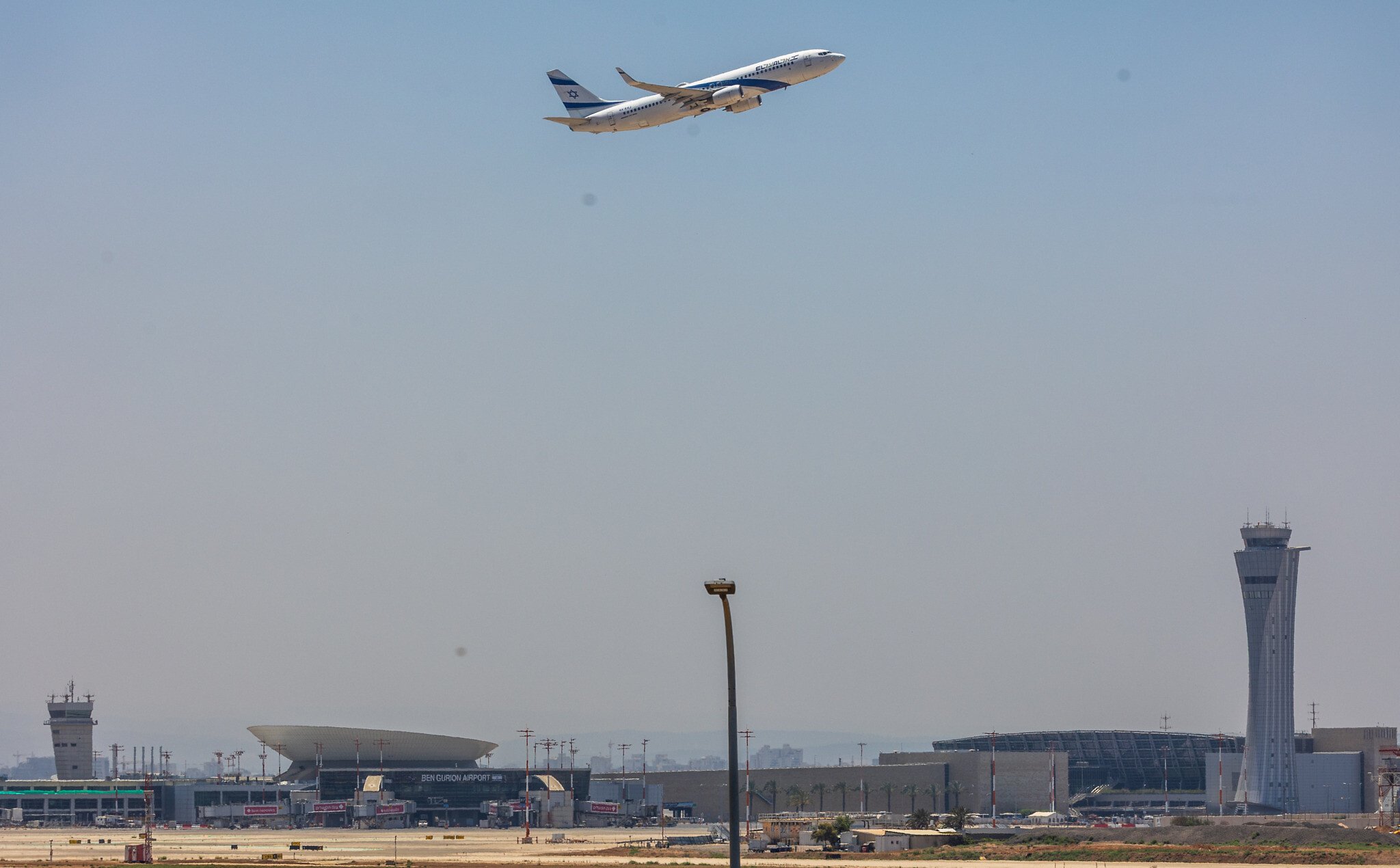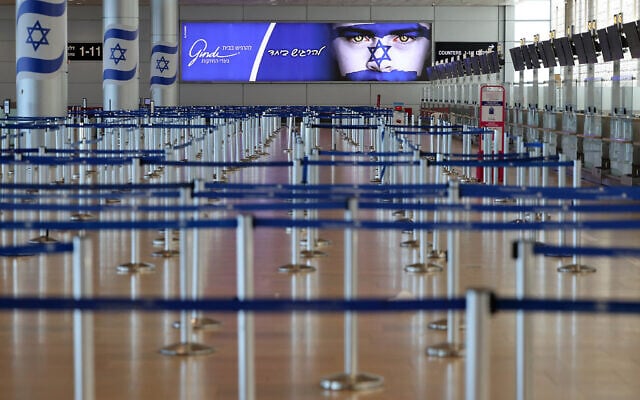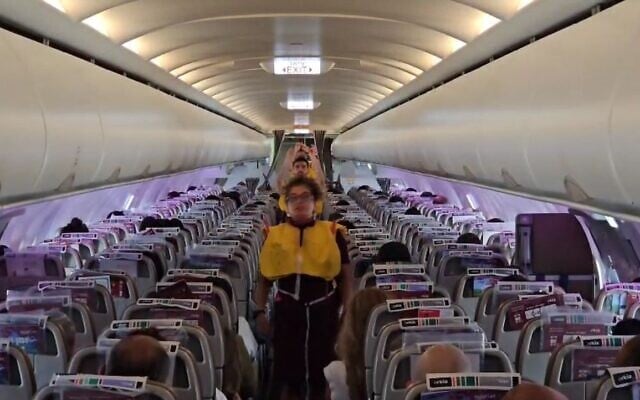



Israel reopened its skies for air travel on Tuesday night after the Home Front Command lifted all restrictions on gatherings as a fragile ceasefire with Iran appeared to take hold.
Israel’s main international Ben Gurion Airport and other airports are returning to full operation after the country’s airspace remained largely closed during the past 12 days of conflict. As part of a government-led operation, Israeli airlines have in recent days started restricted repatriation flights to bring back an estimated 100,000 to 150,000 Israelis stranded abroad and help those stuck in the country leave.
“Restrictions on the number of incoming and outgoing flights, as well as the number of passengers on each flight, have been lifted,” the Israel Airports Authority said. “In addition, restrictions on the arrival of passengers and accompanying persons at the airports have been lifted.”
Earlier Tuesday, Transportation Minister Miri Regev said that aviation authorities and Israeli airlines were preparing to increase the number of flights, extend airport operating hours, for Tel Aviv’s Ben Gurion Airport to operate in full capacity, 24 hours a day.
US President Donald Trump on Monday night announced that Israel and Iran had agreed to a “complete and total ceasefire,” which went into effect Tuesday at 7 a.m. A few hours later, Iran once again launched ballistic missiles at Israel, leading Jerusalem to carry out a small strike against an Iranian radar site north of Tehran in response.
El Al said all of its incoming and outgoing flights will be operated at full seat capacity without any restrictions. El Al passengers whose flights were canceled due to the Iran conflict and the closure of Israeli airspace on June 13 will be able to use their canceled ticket free of any charges.
In addition, the flagship carrier is working on ramping up its flight schedule and adding destinations in the coming days to help bring tens of thousands of stranded passengers abroad back to Israel.
El Al will bolster the frequency of flights to and from eight destinations where most of its passengers are stranded — Larnaca, Athens, Rome, Paris, London, New York, Los Angeles, and Bangkok. In the coming two days, the local carrier will also start to operate additional flights to and from Budapest, Bucharest, Amsterdam, Prague, Madrid, Milan, Warsaw and Sofia.
“Assignment of passengers on departing and arriving flights will be done automatically by El Al, based on the registration form filled out by customers whose flights have been canceled,” the airline noted. “Once all of our customers have been assigned, the flights will be opened for booking to the general public.”
Smaller local carrier Arkia announced that it will resume its regular flight schedule planned for the summer season starting Monday, July 1. Destinations include Rhodes, Crete, Corfu, Athens, Paris, Milan, Geneva, Mykonos, Larnaca, Amsterdam, Barcelona, New York and Tivat. Tickets can be purchased on the company’s website and through authorized sales agents.
On the assumption that the truce with Iran holds, rival Israeli carrier Israir said it will expand the number of flights and destinations in the coming days. The airline plans to operate flights to and from Athens, Larnaca, Varna, Tbilisi, Rome, London, Budapest, and Batumi.
Speaking at a press conference before the Home Front Command restrictions were lifted, Regev said that since the beginning of the safe return operation launched last week and through Tuesday, more than 100,000 stranded Israelis will have returned home, and about 70,000 people will have departed.
“Today [Tuesday], 24 flights will land at Ben Gurion Airport, and nine flights in Haifa, and this morning, a Mano cruise arrived with 1,900 Israelis,” she remarked.
Regev encouraged the Israeli public to go back to making plans for the summer months, although most foreign airlines are not expected to resume their flight operations to Israel during the peak season, as they have already diverted aircraft elsewhere.
She noted that a number of foreign airlines have already applied to resume their flight operations to Israel, including flydubai, Etihad Airways, Blue Bird, TUS Airways, Red Wings, and Ethiopian Airlines.
Many foreign carriers have not resumed flight operations to Israel since the Houthi missile strike near Ben Gurion Airport at the beginning of May. In the wake of the attacks on Iran and barrages of ballistic missiles directed at Israel over the past 12 days, most foreign airlines further extended their flight suspensions to Israel until after the summer months and some until September or October.
Although Israel has been a profitable market for foreign airlines and demand is expected to be high, their gradual return is poised to be slower as the carriers already rerouted planes to other destinations, and will be looking for more stability and security before considering coming back.


